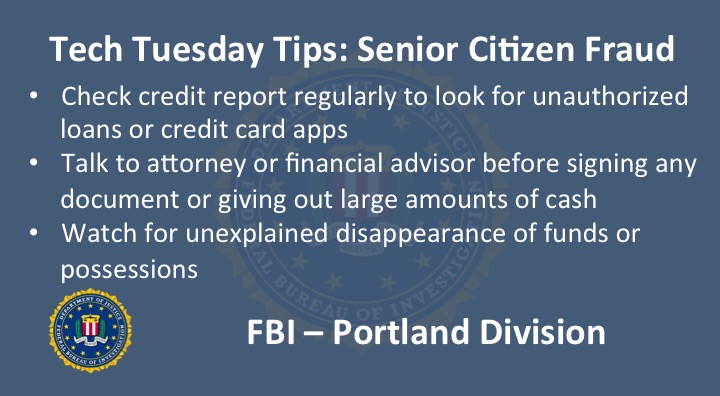Last week, we talked about financial schemes to which older Americans are particularly vulnerable … including sweetheart scams and frauds involving healthcare, lottery winnings and government impersonators.
This week, we are looking at a different kind of financial fraud by someone who is close to the victim. This can be a relative, caregiver or other acquaintance who takes advantage of a senior’s trusting nature or declining health and cognitive abilities. In fact, the Department of Justice believes about a quarter of all older Americans who are subject of a fraud attempt will actually be victimized.
These frauds can be high-tech or low-tech — but the results are the same. Common schemes include:
- Using the victim’s ATM or credit card without permission
- Forging signatures on a check, legal document or vehicle title
- Unauthorized sales of valuables including jewelry, cars or property
- Use of threats to harm the victim or others if money is not paid
- Telling an older adult that a financial gift or loan is for college when in reality it is for some other purpose
If you are an older American — here are some things you can do to help protect yourself:
- Always store financial materials in a locked drawer or out of sight
- Check your credit report regularly to make sure no one has taken out loans or credit cards in your name
- Don’t respond to email, phone or Internet solicitations
- Check with an attorney or certified financial advisor before signing any document — particularly a will or power of attorney – or before doling out large sums of money
If you are a caregiver who is concerned about an older citizen, work with them to check their financial statements each month, and watch for these warning signs:
- Sudden changes in banking practices, including adding new people to an account
- Changes to a will or other financial documents
- Unexplained disappearance of funds or possessions
- Notices of unpaid bills or the delivery of unexplained purchases
If you have been victimized by this online scam or any other cyber fraud, be sure to also report it to the FBI’s Internet Crime Complaint Center at www.ic3.gov or call your local FBI office.





